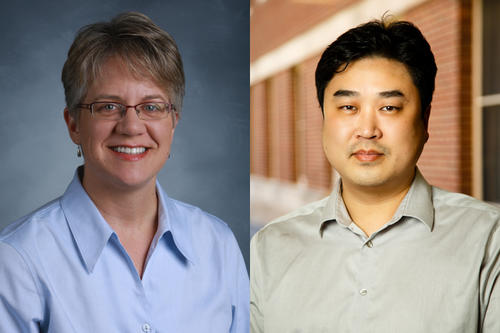
Yesterday, Hurricane Willa made landfall on Mexico’s Pacific coast. The implications of this natural disaster are physical in the destruction and displacement of people, but also have long-lasting psychological effects.
University of Minnesota experts Wendy Looman and Hyun Kim are available for comment on the psychological implications related to large natural disaster displacement:
Wendy Looman
“Natural disasters such as hurricanes can have a profound psychological impact on children and families, even if they are physically unharmed in the event. For children in families who are displaced, some of the most difficult aspects of the experience are a lost sense of security, changes to routines due to displacement and witnessing parents in emotional distress. Children thrive on routines and familiarity, and displacement from home can be particularly traumatic.
“The fact that we give names to major storms can be frightening and confusing to children, who may learn to fear all storms as scary creatures with destructive intent. Children may withdraw or act out when the adults around them are distressed and dealing with their own trauma.
“The best response for children who have been displaced due to a natural disaster is to provide structure, familiar routines and an opportunity to talk about their experience with an adult who is willing to listen and help them process their feelings. Often this is can be facilitated in a school setting, which is familiar to children.”
Wendy Looman, PhD, APRN, CPNP-PC, is a professor at the School of Nursing and chair of the Child Family Health Cooperative. Her scholarly focus is on social capital and family health; children and youth with special health care needs; and quality of life among children with neurodevelopmental conditions. Looman is also a member in the Center for Child and Family Health Promotion Research and the Center for Children with Special Health Care Needs.
Contact information
Wendy Looman
[email protected]
612-624-6604 (o)
612-616-0730 (c)
Hyun Kim
"Major Hurricanes like Katrina, Sandy, Michael, and now, Willa, are not just greatly destructive natural disasters, but they also force people from their homes and sometimes make it hard for them to return. To this day, New Orleans has not yet fully recovered from the loss of nearly half its population following Hurricane Katrina."
"The main problem for displaced people is not just losing their homes, but consequently experiencing mental stress. Mental stress is often an invisible or hidden problem, but it is linked to many other health problems, from chronic physical conditions to suicide.
"Due to climate change, we are expecting more frequent and more intense hurricanes. So far, most disaster preparation and response activities have been focused on restoration of physical infrastructures, but it is important to prevent mental stress and to monitor it closely after hurricanes, especially among displaced people."
Hyun Kim is an assistant professor in the University of Minnesota School of Public Health. His expertise includes the epidemiology of occupational injury and disasters, including long-term impacts of Hurricane Sandy and the World Trade Center attacks. His current research focuses on long-term consequences of a disaster event, such as health hazards, exposure assessment, and prevention of diseases among exposed populations.
Contact information
Hyun Kim
[email protected]
516-574-9180 (c)
###
About University of Minnesota experts
University of Minnesota experts can provide commentary, insights and opinions on various news topics. See selected experts on UMN’s Experts Guide or inquire about additional experts via email at [email protected].
Media note:
The University of Minnesota Twin Cities is equipped with a VideoLink ReadyCam® studio for live or taped HD television interviews with our experts. To arrange an interview, contact the University News Service at (612) 624-5551 or [email protected].
About the University of Minnesota School of Nursing
Founded in 1909 and recognized as the birthplace of university-based nurse education, the University of Minnesota School of Nursing continues to lead the profession into the future. With a mission to generate knowledge and prepare nurse leaders who create, lead and participate in holistic efforts to improve the health of all people, the school and its research are addressing health issues across the life span with a focus on health promotion among vulnerable populations, prevention and management of chronic health conditions, symptom management, and health/nursing informatics and systems innovation. The school is ranked among the top programs in nursing informatics and is internationally renowned for its efforts to improve health and health care through the use of big data.
About the University of Minnesota School of Public Health
The University of Minnesota School of Public Health is one of the premier schools of public health in the world. Since 1944, its faculty, staff, and students have brought innovative thinking and concrete action to emerging and persistent challenges, including structural racism, gun violence, an expanding aging population, and a changing climate. Located in one of the largest metropolitan areas in the U.S., it prepares some of the most influential leaders in the field, and provides the knowledge health departments, communities, and policymakers need to make the best decisions about population health.
- Categories:
- Health




